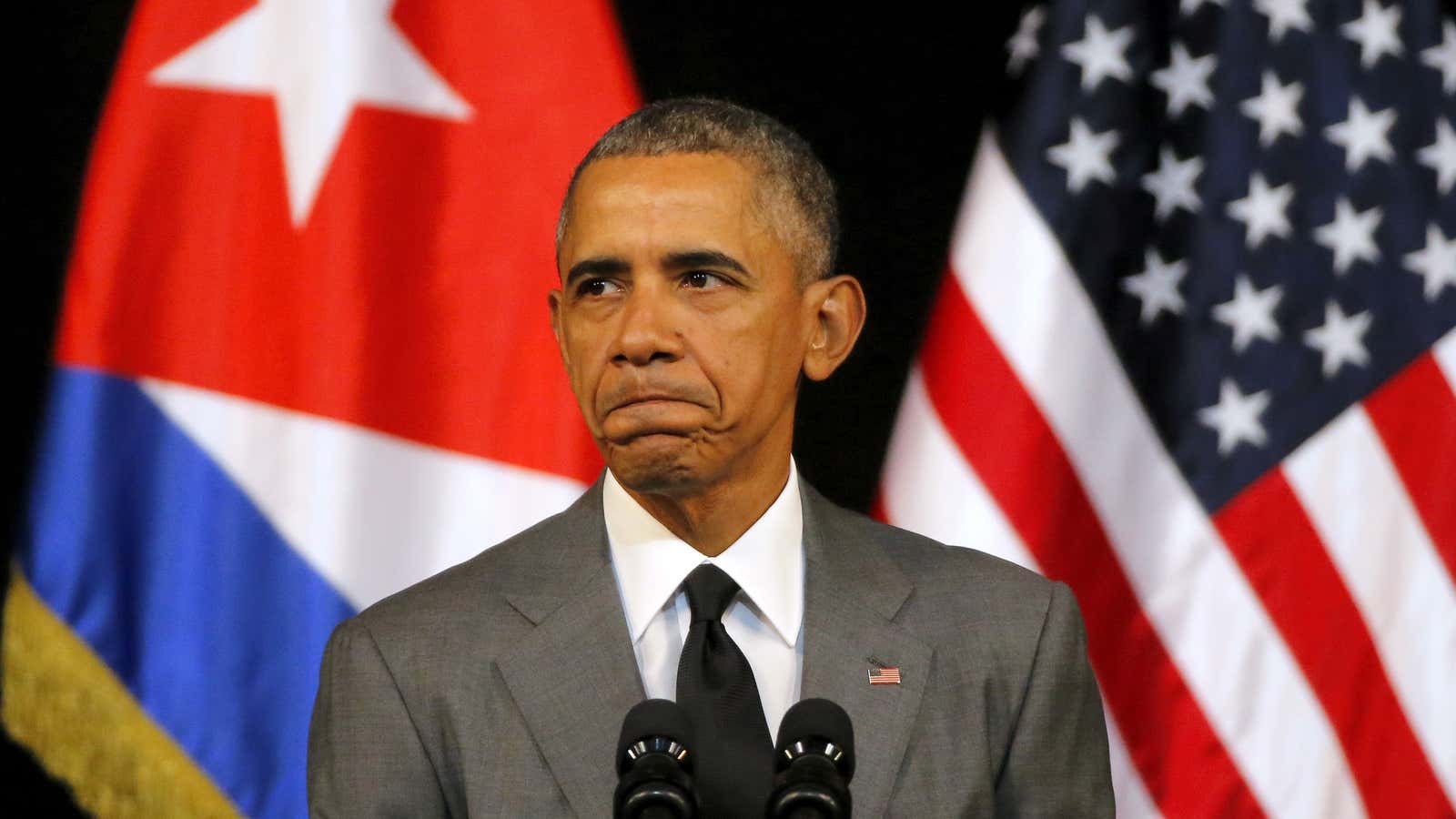President Barack Obama got an unprecedented chance to talk to the Cuban people on the last day of his historic visit to the island. His main message: Get over the Cold War. The US is no longer out to get you.
“I have come here to bury the last remnant of the Cold War,” he said in a televised speech at Havana’s Gran Teatro today, Mar. 21.
Obama, the first US president to visit Cuba since 1928, said that the US had neither ability nor the intent to impose its politics or economic model. He even hammered in the message with some phrases in Spanish: “El futuro de Cuba tiene que estar en las manos del pueblo cubano.“ (Cuba’s future must be in the hands of the Cuban people.)
Instead of intervention, he offered peace and friendship, as well as a lengthy sermon about how to move on, politically and emotionally. Cubans should have the right to free elections and freedom of speech, he said, and wider access to the internet, which drew a a big clap of hands from the crowd. Cuba’s self-image as a David against the US’s Goliath could also use some updating, he implied.
“I know that part of Cuba’s identity is its pride in being a small island nation that could stand up for its rights and shake the world,” he said. “But I also know that Cuba will always stand out because of the talent, hard work, and pride of the Cuban people.”
But redefining their relationship with their powerful neighbor might be a tall order for Cubans still living under a painful US embargo. If the audience’s reaction to Obama’s speech is any indication, they are mostly in the mood for economic change: While Obama elicited polite applause from the crowd for praising Cuban inventiveness and quoting national hero José Martí, he got a standing ovation once he spoke about ending the embargo.
